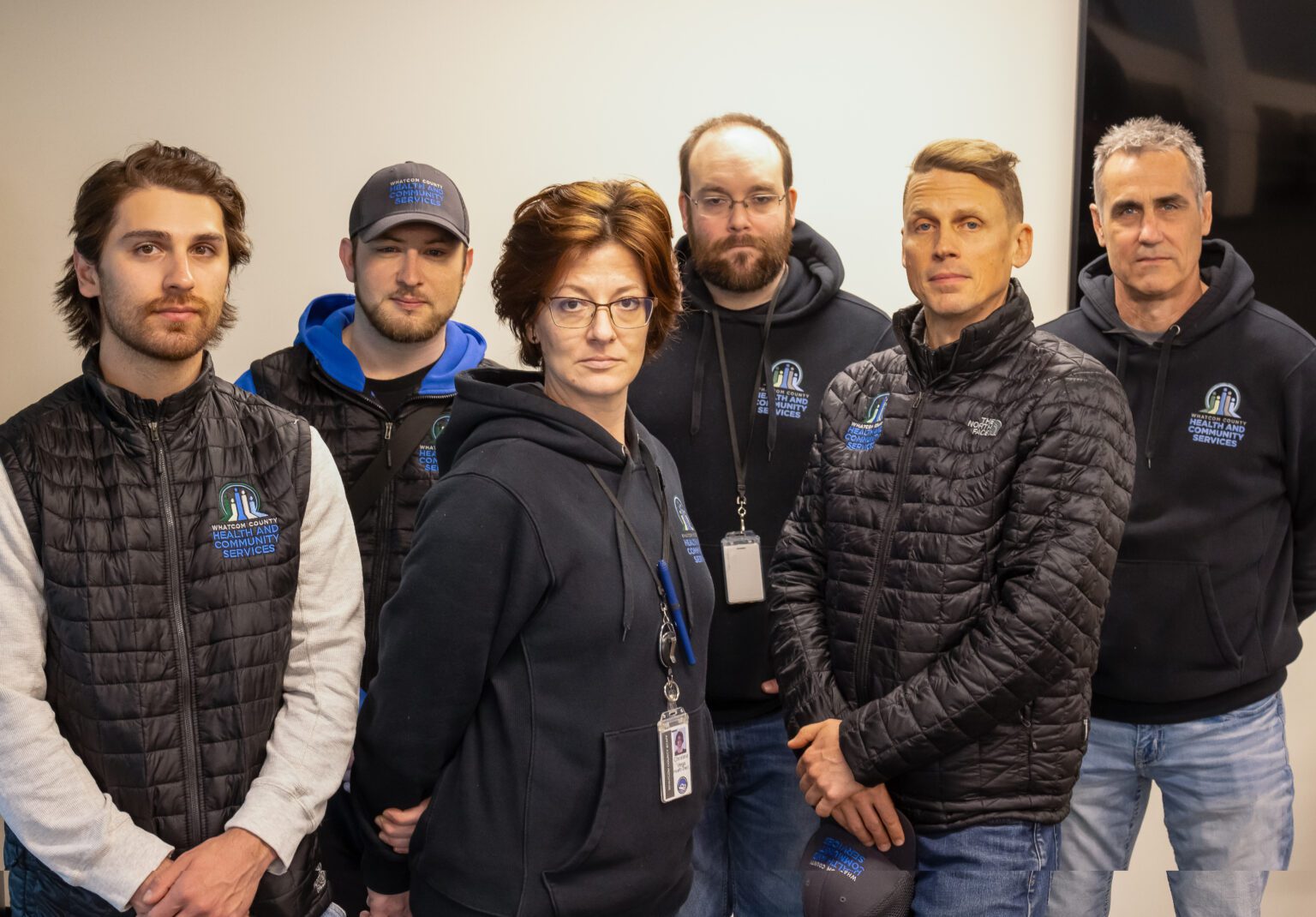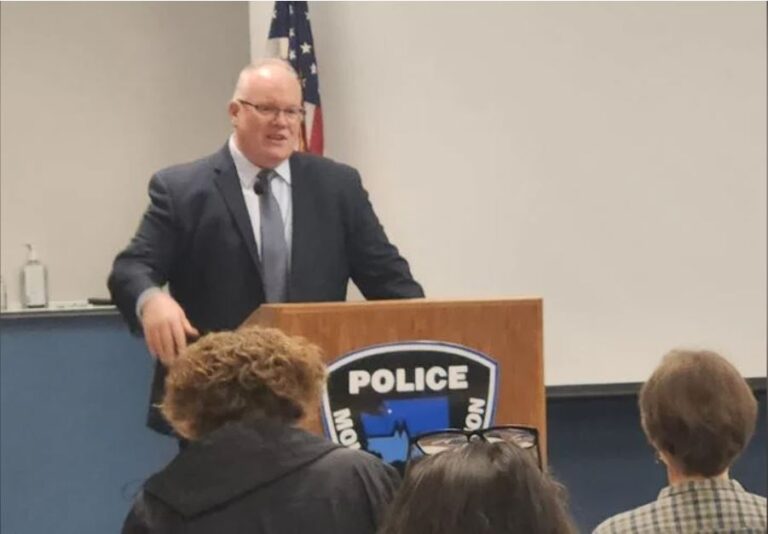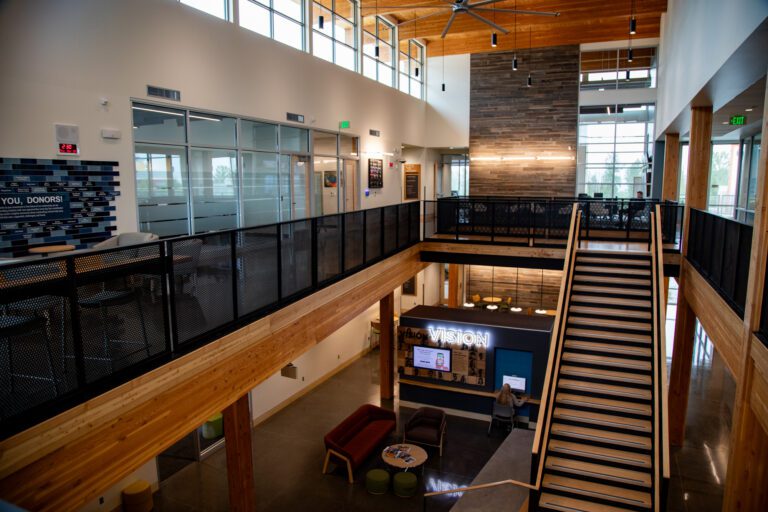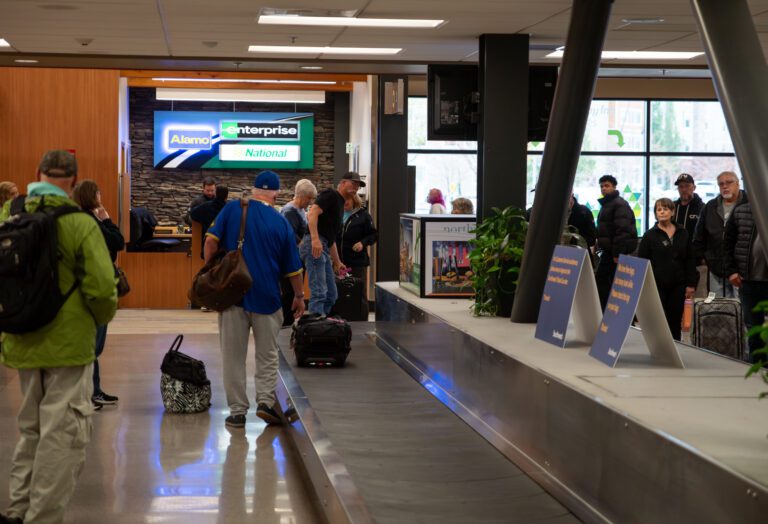A new law enforcement diversion program, the Alternative Response Team (ART), responded to 830 emergency calls in its first six months of operation.
The Bellingham program, which began operating in July 2023 through Whatcom County Health and Community Services, dispatches specialists, rather than police, to help people in a behavioral health crisis when a resident calls 911.
Made up of behavioral health specialists and an ART community connector embedded in the WhatComm dispatch center, the program served 769 individuals between July and December 2023. It currently operates from 8:30 a.m. to 5:30 p.m. Monday through Friday.
Programs like ART are part of the department’s “public health approach to public safety,” Response Systems Manager Malora Christensen said in a recent presentation to Whatcom County Council.
“[It’s] one that centers the response and interaction in showing up, doing our best to provide interventions that address the root causes behind an individual’s situation,” she said.
ART launched in January 2023 and spent months preparing for operation, Christensen said. Now, the program is in the analysis stage.
“Should we change our hours? Should we expand to seven days a week? Could the community connector position play a different role in having other teams involved in 911 calls? I would say, we’re still in that phase of, let’s do the work long enough to understand it,” Christensen told CDN.
How ART works
When someone calls 911 during ART hours, dispatchers and the ART community connector decide what the response should look like, Christensen said. Dispatchers conduct safety screenings with callers to determine if it would be safe to send a behavioral health team, rather than police.
Bellingham Police Department Public Information Officer Megan Peters said the police department received 37,000 calls July through December 2023, and approximately 2% of those calls were diverted to ART.
Deputy Director Alysn Everbeck, who oversees the WhatComm 911 Dispatch Center, said at the council meeting that calls fall into three buckets: a person is calling for help for themselves as they experience a behavioral health crisis; a person is calling worried that a loved one may need help; or it’s the community calling in a “disruption.”
“That could be a trespass, especially if the person doesn’t have the authority to trespass the person or doesn’t want them to have a law enforcement interaction, they just want the problem to stop,” she said. “It could also just be someone who’s acting oddly in a public space and causing alarm to the people who are calling in.”
ART team members spend an average of 45 minutes to an hour with the person at the scene. During that time, members use de-escalation skills, build rapport with the client, and navigate them to the “next level of care” beyond the scope of ART, supervisor Jon Dukes said in an interview.
Christensen said the most urgent needs from clients include shelter, behavioral health services and detox treatment, but limitations make it challenging for ART members to connect people to services.
As a result, team members are often doing “safety planning” with people, due to limits to resources.
“If they need housing, we don’t have immediate housing that we can give them but it is really saying, how can you be safe for this night? What's your plan, let's talk through that,” she said.
Dukes said the behavioral health aide within the ART team is able to transport people, which gives the team and the client the opportunity to look at resources throughout the region, such as the detox centers in Skagit County and Oak Harbor, he said. Other times it’s bringing people to the hospital for care or home to family.
Christensen highlighted in her presentation that law enforcement was not required for additional support 99% of the time.
The next year
The program has been funded so far through a $2.2 million allocation from the state Legislature, supported by Rep. Alicia Rule and funding from the Association of Washington Cities through the City of Bellingham.
County council member Todd Donovan asked at a March 19 meeting about the hesitancy people might have to call 911. Christensen said it's not a perfect system, but the program is another resource along with other options if someone is in crisis. This includes the Volunteers of America Crisis Line (800-584-3578) and the Homeless Outreach Team (360-312-3717).
Dukes and Christensen are also promoting 988: the suicide and crisis lifeline, available 24 hours a day.
“The reality is, if someone feels that they need to call 911, now we have the opportunity on Monday through Friday, 8:30 to 5:30, that a community connector may take that call and then, if it's safe, dispatch the Alternative Response Team," Christensen said.
Charlotte Alden is CDN’s general assignment/enterprise reporter; reach her at charlottealden@cascadiadaily.com; 360-922-3090 ext. 123.




